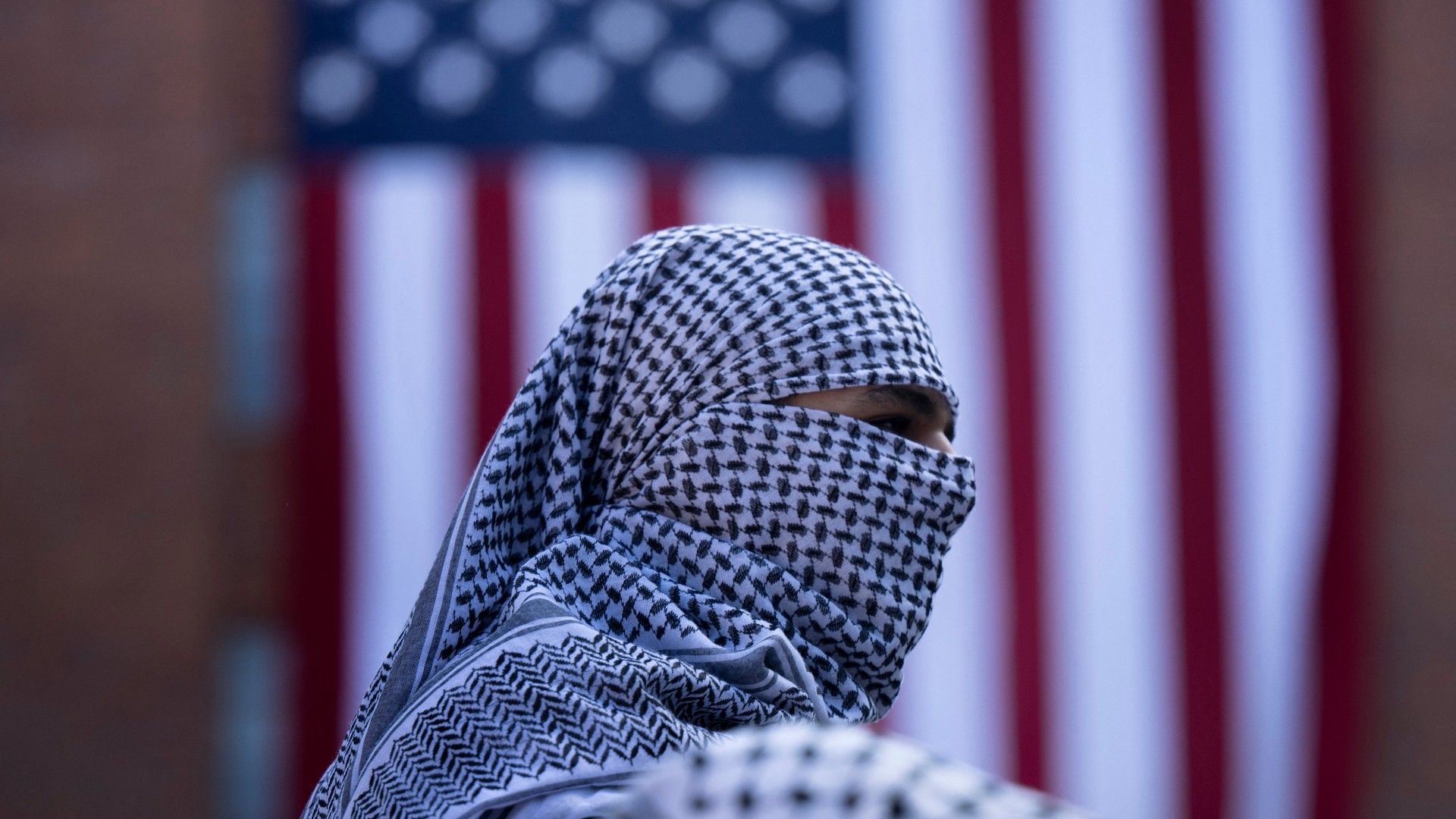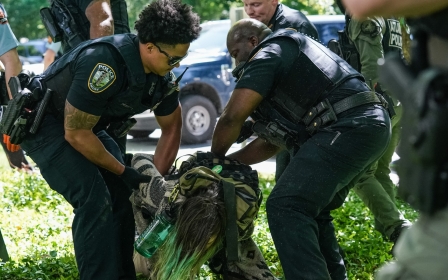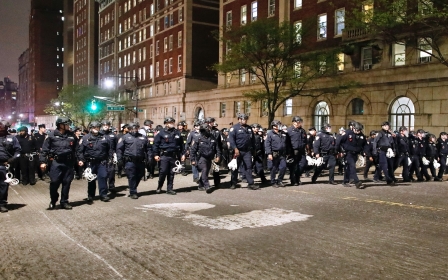US: 7 October survivors file lawsuit targeting pro-Palestine groups

Two leading US pro-Palestine groups, National Students for Justice in Palestine and (NSJP) and American Muslims for Palestine (AMP), have been accused in a federal lawsuit of spreading propaganda on Hamas's behalf.
Filed by Greenberg Traurig, the 14th highest-grossing US law firm, the lawsuit, seen by Middle East Eye, accuses the advocacy group AJP Educational Foundation Inc, which sponsors NSJP and AMP, of serving as "Hamas’s propaganda division in the United States".
The plaintiffs are a group of nine American and Israeli individuals including six survivors of the Hamas attack on southern Israel on 7 October, the brother of a victim killed in the attack, and two others displaced from their homes in an Israeli kibbutz. The lawsuit was filed in a US District Court in Alexandria, Virginia.
The plaintiffs, the lawsuit alleges, "have been, and continue to be, injured by AMP and NSJP’s intentional, systematic, and substantial assistance to Hamas’s acts of international terrorism. AMP and NSJP are liable for Plaintiffs’ resulting damages", the lawsuit reads. The plaintiffs are seeking unspecified monetary damages from SNJP and AMP.
The suit comes in the wake of unprecedented student protests across US campuses against Israel's ongoing war on Gaza.
New MEE newsletter: Jerusalem Dispatch
Sign up to get the latest insights and analysis on Israel-Palestine, alongside Turkey Unpacked and other MEE newsletters
At least 90 Gaza solidarity encampments have been set up at US universities in recent weeks, with the Associated Press reporting on Thursday that 2,000 people have been arrested since mid-April across the US, when students at Columbia University in New York City began a Gaza solidarity encampment, sparking a wave of similar protest camps at schools across the US.
NSJP chapters at colleges across the US have taken centre stage in the organisation and implementation of the protests.
The war in Gaza began on 7 October, when Hamas and other Palestinian armed groups launched a surprise attack on southern Israel, killing 1,140 people and taking around 240 people hostage. Israel responded to the attacks with a declaration of war, launching a siege on Gaza and a devastating aerial bombing campaign that was followed by a ground invasion.
Israel's war on the enclave has killed more than 34,500 Palestinians, most of whom are women and children, levelled entire residential neighbourhoods, and targeted other civilian infrastructure including schools, hospitals, and mosques.
'The lawsuit is an Islamophobic text reeking in anti-Palestinian racism'
- Dr Hatem Bazian, chairman AMP
Text 'reeking of Islamophobia'
The introduction of the 49-page document begins with the words "When someone tells you they are aiding and abetting terrorists—believe them."
The lawsuit then proceeds to detail SJP and AMP's alleged activities, including trying to "force" the American government and academia to bend to Hamas’s will.
It then describes the student protestors as "uninformed, misguided,
and impressionable" and who serve as "foot soldiers for Hamas on campus and beyond".
The lawsuit also claims that the "NSJP Toolkit", a document calling for protest among students at US campuses, includes materials that "appear to have been created before the attack" and that the toolkit "perpetuates" Hamas’s "ongoing terror campaign" in the US.
AMP’s chairman Dr Hatem Bazian, described the lawsuit as an "Islamophobic text reeking in anti-Palestinian racism".
The claims in the lawsuit are "baseless" and "mock basic legal research", he said in a comment to Middle East Eye, pledging that AMP will defend itself.
Middle East Eye reached out to Greenberg Traurig for comment and was directed towards a press release on the firm's website.
Attorney Christina Jump, who is working on the case for AMP, told the Washington Post that victims and relatives are entitled to redress for the trauma suffered but that the lawsuit was “misdirected”.
Middle East Eye delivers independent and unrivalled coverage and analysis of the Middle East, North Africa and beyond. To learn more about republishing this content and the associated fees, please fill out this form. More about MEE can be found here.



